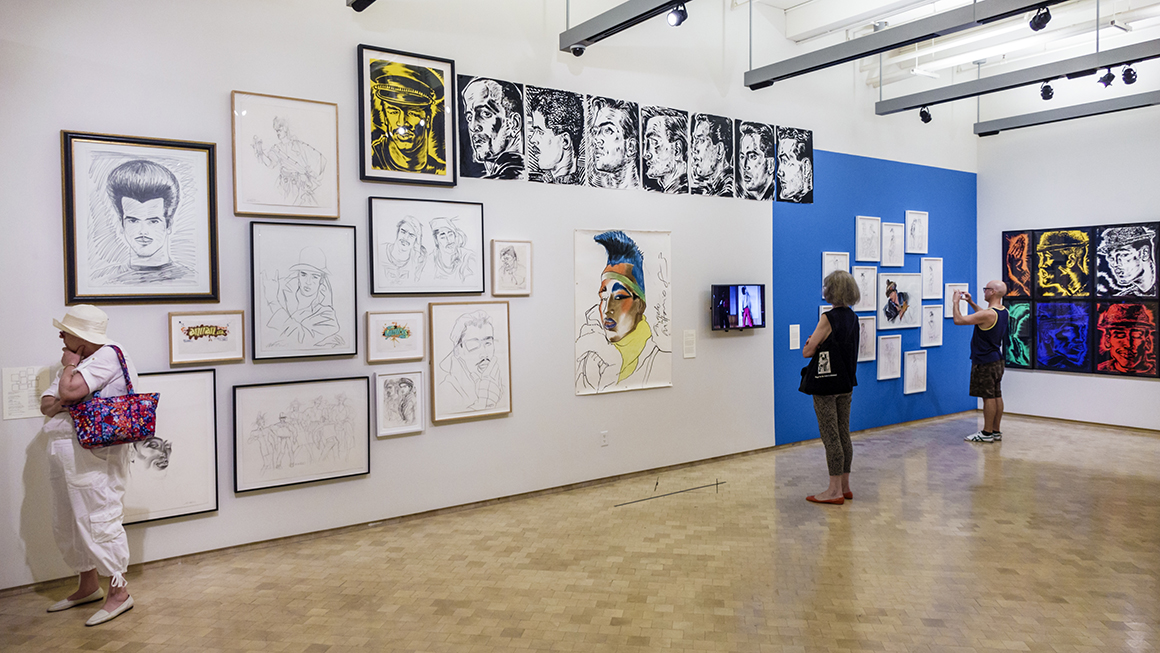
View the Spanish version of this post.
American Latinos have played a significant role in shaping US history and culture, and their influence continues to grow, with Latino people now making up one-fifth of the US population.
Across the country, American Latino cultural institutions work to acknowledge the contributions and struggles of diverse Latino communities by celebrating their lives, art, culture, and experiences. While these museums are often smaller, newer, and have limited funding they have developed innovative strategies (PDF) to cocreate spaces with communities and to advance cultural equity.
From 2022 to 2023, the Urban Institute conducted research for the Institute of Museum and Library Services to inform the development of its new American Latino History and Culture (ALHC) grantmaking program, which aims to strengthen the capacity and impact of Latino museums nationwide. We identified 106 museums in the US that focus on Latino art, history, and culture and another 164 museums that hosted exhibits on Latino issues with federal grants. We also spoke with dozens of museum professionals, including those leading and funding American Latino institutions and those working to advance more equitable representation for Latinos in the US narrative.
This research surfaced important insights into the role grassroots, community-driven efforts play in creating American Latino museums. In addition to preserving the diversity of Latino cultures in the US, these museums provide opportunities for their communities to cocreate programs, share stories, and learn about Latino achievements.
Note: In this post, we use “Latino” to refer to people of Spanish and/or Latin American origin in the US to remain consistent with the legislation authorizing the ALHC program.
American Latino museums build and strengthen communities
Historically underresourced, American Latino museums often fulfill hybrid roles in their communities, acting not just as museums but also as cultural centers. They may have galleries to display art and spaces to host community events. In this way, American Latino museums can function as places for civic engagement and as agents for social change that link education, culture, and power.
Museums and cultural centers provide a working space for Latino artists, historians, and advocates to foster a sense of belonging, highlight issues Latinos care about, and recover voices and narratives (PDF) erased from the mainstream. These institutions often cocreate their spaces and programming with community members. They can also help unite people born in the US and those who immigrated to the US by celebrating their diverse experiences and cultures.
Moving away from a deficit model, these collaborations recognize multiple knowledge systems and respect diverse ways of seeing the world. As one Latino museum professional described, these museums are “doing amazing work in the community [and] leading the way of how to orient work in the community.”
American Latino museums empower future generations
For the more than 63 million Latinos living in the US, American Latino museums are a place to see themselves, their culture, and their ancestors’ struggles and accomplishments reflected.
Many professionals Urban spoke with were inspired to become involved in the American Latino museum space because of experiences they had as children or young adults. As one professional described, “When you get to see yourself reflected in society is when you feel empowered… and nothing is better than arts and culture to do that. And once that happens, then you feel that you’re part of something larger. You will foster that social capital [and] build community.”
American Latino museums can help inspire and grow the field of Latino curators, historians, artists, educators, community advocates, and other museum workers. To this end, the Institute of Museum and Library Services recently launched its second round of the American Latino Museum Internship and Fellowship Initiative to help support students at institutions of higher education who are studying Latino life, art, history, and culture.
In addition to inspiring future museum leaders, many American Latino museum visitors report having valuable, personal experiences (PDF) at Latino events and programs put on by culturally specific museums and at institutions working in collaboration with Latino communities. For families, Latino museums also build connections across generations, often creating spaces that older, Spanish-speaking relatives can visit alongside members of younger, English-speaking generations. In this way, these cultural centers foster bonding, remembrance, and a sense of shared history—important attributes of meaning-making for any culture, but especially for Latinos.
American Latino museums advance cultural equity
One of the overarching goals of the ALHC program is to advance cultural equity, or to “illuminate the story of the United States for the benefit of all by featuring Latino contributions.” Cultural equity means ensuring all people, including Latinos, are valued, supported, and represented in cultural policies and investments.
As one professional explained, “Many times, members of our community don't think of themselves as having historical value—their stories, their family, their living in this society—and therefore, they don't care for their objects, they dispose of them, or they don't see them as relevant.” Given Latinos exclusion from mainstream US narratives, American Latino museums are vital social institutions, working with communities to help preserve and promote Latino art, culture, and history for the engagement, education, and enjoyment of all Americans.
We found that despite structural challenges, diverse Latino communities and museums across the US have successfully elevated Latino history, artists, and cultural contributions in recent decades. As Latinos, we are excited to see our cultures represented in a variety of spaces and to support American Latino museums as they work to preserve our history, culture, and traditions for generations of Americans to come.
Let’s build a future where everyone, everywhere has the opportunity and power to thrive
Urban is more determined than ever to partner with changemakers to unlock opportunities that give people across the country a fair shot at reaching their fullest potential. Invest in Urban to power this type of work.